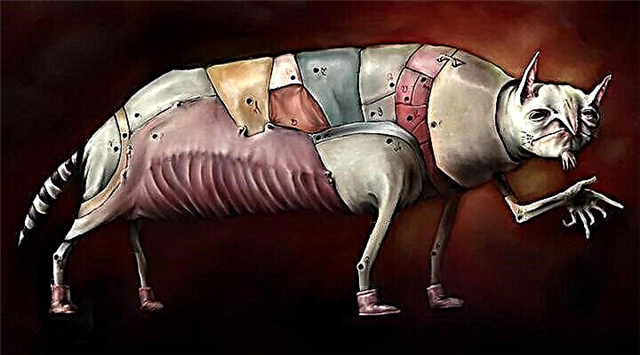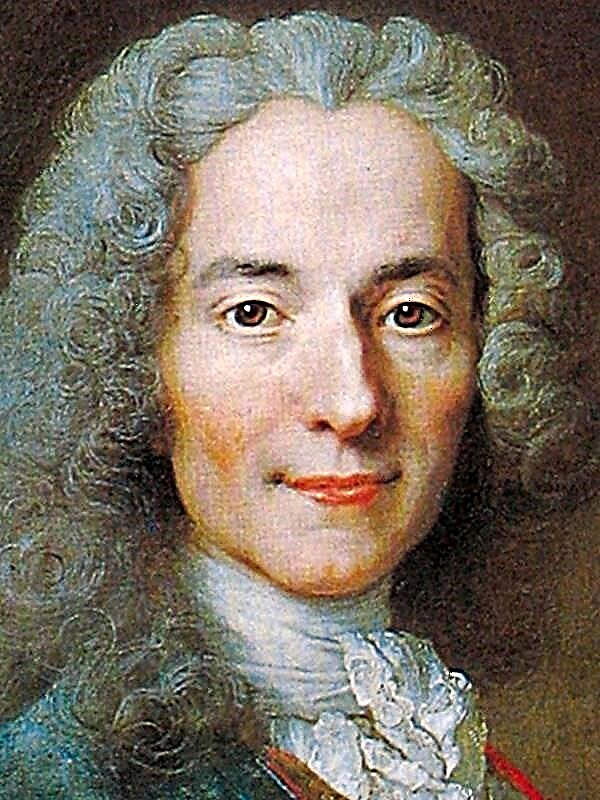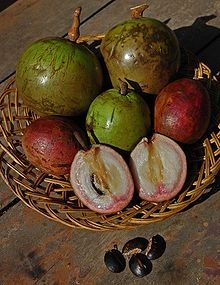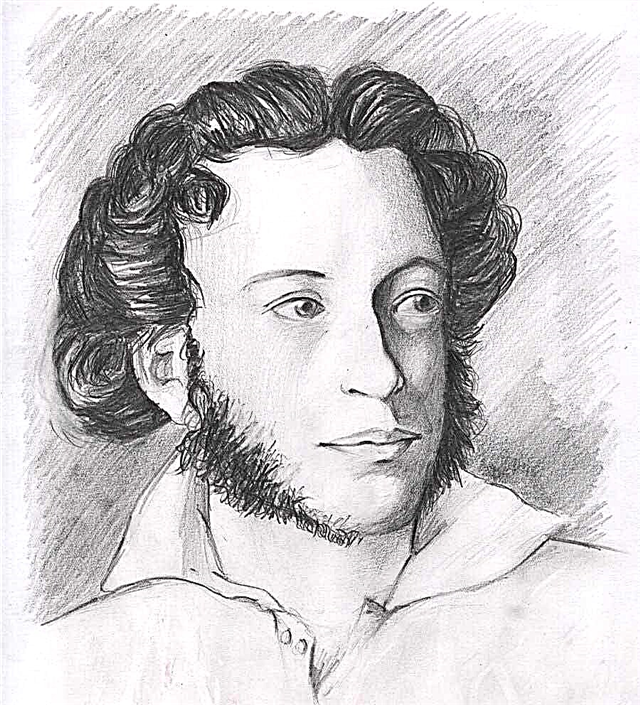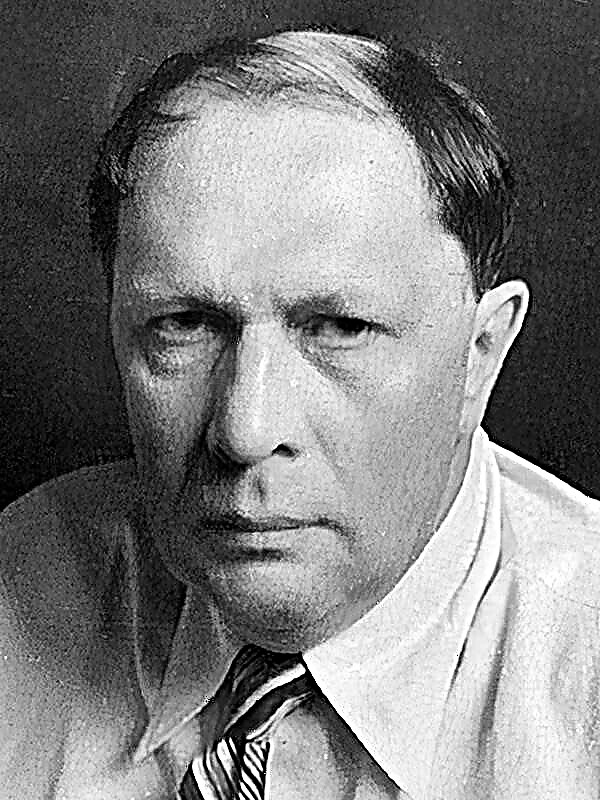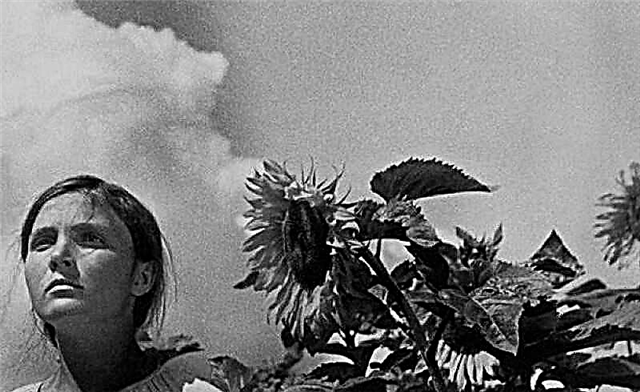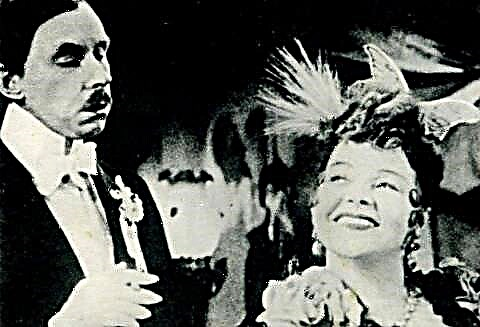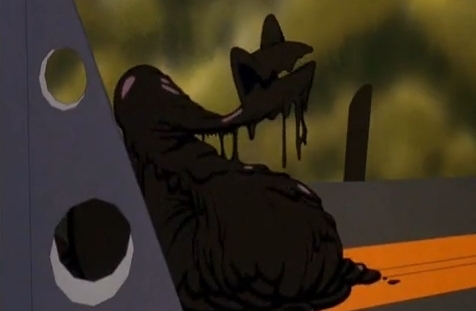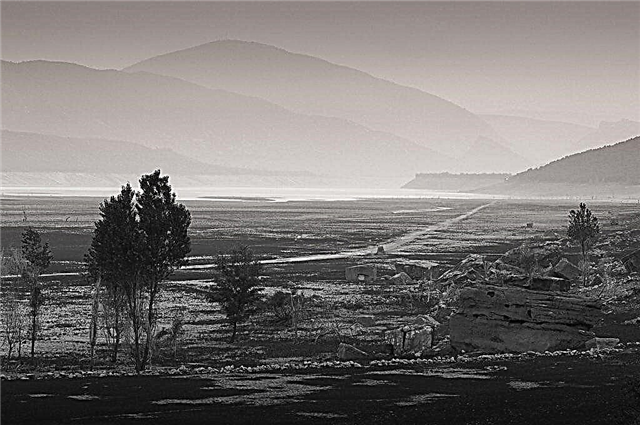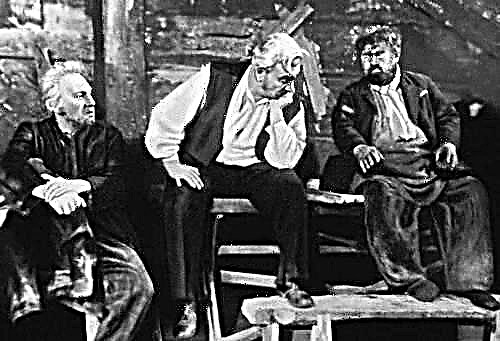: Ancient Russia. The prince with the army goes to the land of the enemy, loses the battle, is captured, but soon escapes from it and returns home.
The "Word" was written by an unknown author (possibly a monk) in Old Russian. The retelling is based on an explanatory translation by D. S. Likhachev, and quotes are from a poetic translation by N. A. Zabolotsky. The division of the retelling into chapters is conditional.
Old style and singer Boyan
The author ponders in what style he should write the Word, and recalls the old singer Boyan, who composed prophetic songs about princes in the old style.
Tot Boyan, full of marvelous forces,
Coming to the prophetic chorus
Circled a gray wolf across the field,
Like an eagle soared under a cloud
Thought spread over the tree.
The author describes in what beautiful poetic expressions Boyan would have started the song about Igor, “the old nightingale”, but he himself wants to narrate closer to the actual events of his time.
Military campaign of Prince Igor
It is based on the unsuccessful military campaign of the Russian princes against the Polovtsy (Tatars) in 1185.
Prince Igor led his regiments to the Polovtsy, wanting to defeat the "filthy", become famous and take rich booty.

Igor Svyatoslavich - Old Russian prince, head of the Novgorod-Seversky principality, the protagonist of the work
The campaign began with a gloomy omen - a solar eclipse. But the prince believed that it was better to die in battle than to sit at home, waiting for the Polovtsian raid. The prince dreamed of reaching victory to Don the Great and engaging in battle with the Polovtsy on their territory - on the edge of the Polovetsky field.
Prince Igor went on a campaign with his own brother, the mighty Vsevolod Svyatoslavich.

Vsevolod Svyatoslavich (Bui-tour) - the old Russian prince, Igor's brother, nicknamed the Bui-tour (furious bull) for courage
Vsevolod Svyatoslavich approved his brother’s intention to reach the Don and beat the Polovtsians in their own steppe. His famous, from childhood trained squad was already waiting at Kursk beginning of the campaign.
All along the way to the Polovtsian steppes Igor was accompanied by signs that portended misfortune, such as a solar eclipse. All hostile Russia southeastern countries learned about the campaign of Russian troops. Frightened Polovtsy, hearing about the approach of the Russians, began to run to the Don.
And they run, hearing of the raid
Polovtsy through the steppes and yarugs,
And their old carts creak
They vote like swans in fright.
Having spent the night in the steppe, Igor’s army lined up in battle order, crushed the Polovtsian regiments, took rich booty - gold, precious stones, beautiful “Polovtsian virgins”. The production of the Rus was so great that the cloaks, bedspreads and covers of the Polovtsy could be paved through the swamp. Prince Igor took only the military banners of the Polovtsi.
Again the Russian army spent the night in the field. The author discusses how far Prince Igor has flown. In the meantime, hordes of the Polovtsian khans Gzak and Konchak hurried towards the Rus.
Gzak - Polovtsian Khan, head of the Don Polovtsian association
The next day, the hordes of Polovtsy attacked four Russian princes who participated in the campaign: Igor, Vsevolod Svyatoslavich, Oleg and Svyatoslav. The author compares them with the four suns that want to extinguish the Polovtsian clouds.
The blue lightning flutter
Lightning flashes all around.
This is where the Russian spears break.
That's where the sharp sabers dull,
Thundering about the enemy shell!
O Russian land!
You're already over the hill.
The Polovtsy surrounded the Rus at the Kayala River and fired a "cloud of arrows at the Russian regiments." The battle description merges with the image of an approaching thunderstorm.
The battle began with a shootout from bows. Then the earth rang under the hooves of horses, from the movement of the numerous Polovtsian horde the field was shrouded in a cloud of dust.Polovtsy surrounded Rusich from all sides. The Russian knights closed the shield-to-shield order and prepared to repel the onslaught of the enemy.
The author describes the military exploits of Vsevolod Svyatoslavich, who chopped the heads of the Polovtsians with a sword and showered the enemies with rain from arrows. In the heat of battle, he forgot about fame and fortune, feudal honor, princely duty, love for his beautiful wife and did not feel pain from wounds.
The Russian regiments and Polovtsy fought for a long time, the ground under the horse's hooves was "dead dotted with bones, blackened far from the blood." The battle ended with the defeat of the Russian troops. Brothers Igor and Vsevolod Svyatoslavich parted - were captured by different khans. The author describes how nature mourns the defeat of Prince Igor.
Fought a day, chopped a day or two,
On the third day, by noon, the banners fell
And my brother broke up with his brother
On the bloody river, on the Kayal.
About Oleg Gorislavich
In a lyrical digression, the author recalls the past of Russia and Prince Oleg Svyatoslavovich, from which the family of Prince Igor began.
Oleg Svyatoslavich (Gorislavich) - an old Russian prince, grandfather of Igor and Vsevolod, instigator of civil wars, for which he was nicknamed Gorislavich
The princely feuds begun by Oleg are described, during which he defeated many princes.
Under Oleg, who acted like an enemy and an occupier in his native country, human life ceased to be valued, people became impoverished, crows and jackdaws circled over the dead fields. But even in those days there were no such battles as the battle on the Kayale River.
The bitter aftermath of a lost battle
After Igor’s defeat in Russia, calm times ended. The princes stopped collecting squads and together defended themselves from the Polovtsy, and began to observe only their interests. The Polovtsians took advantage of the disunity of the Russian princes and from all sides began to attack Russia.
Wives mourned the dead knights from the Igor's squad. Enemies imposed a large tribute to Russian cities. Between the Russian princes quarrels and discords began.
The author explains why the defeat of Igor had such dire consequences for all of Russia. Most recently, the Kiev prince Svyatoslav made a victorious campaign against the Polovtsians and captured Kobyak Khan.

Svyatoslav of Kiev - Grand Duke of Kiev, cousin of Igor and Vsevolod Svyatoslavich
Princes Igor and Vsevolod Svyatoslavich disobeyed him, went on a campaign on their own, and, having been defeated, destroyed the Russian advantage over the Polovtsy obtained by Svyatoslav.
Foreigners sympathize with Svyatoslav and accuse Prince Igor of the fact that, together with the lost battle on the Kayal, Russia lost its wealth and military strength.
And rumor runs about the daring
It is as if he, having evicted evil in Russia.
Out of the saddle, miserable, golden
Moved to the saddle koshcheevo ...
Silent cities, and again
In Russia, the fun died.
The Golden Word of Svyatoslav of Kiev
Svyatoslav dreamed in Kiev that they covered him with black cloth on a yew bed, watered with bitter poisoned wine, and poured large pearls onto the canvas from enemy quivers. He dreamed of a tower with a dismantled roof through which the dead were carried out in Ancient Russia, and crows crowed all night near Kiev, foreshadowing misfortune.
The boyars explained this dream to the prince, saying that the Polovtsy had captured his two younger relatives. Svyatoslav “dropped the golden word with tears mixed”, began to rebuke the young princes: they started a war with the Polovtsi at the wrong time, shed the filthy Polovtsian blood, but did not achieve anything, only brought grief to the silver gray hair of the eldest in the family.
But there was time - without shields.
Snatching knives from the shafts
They walked into hordes of enemies
To mark for our ashes.
That's where the glories of the great-grandfather thunder!
Igor and Vsevolod disobeyed their feudal lord, having decided, without resorting to the help of other princes, to appropriate the glory of “measuring the steppe,” which belonged to Svyatoslav of Kiev. The first consequence of their defeat is the Polovtsian attack on the city of Pereyaslavl.
The author calls on the princes to defend Russia
The author calls on the princes to defend their homeland and recalls the strength of each of them. The great Vladimir prince Vsevolod Yurievich has such a huge army that it can splash the Volga with oars and draw the Don with helmets.
Vsevolod Yurievich - the Grand Duke of Vladimir, had a large family, for which he was nicknamed the Big Nest
The author calls the sons of Vsevolod Yurievich “living spears”.
You and the Volga will be taken out by oars,
You are scooping up Don ...
The brave squad of the frantic Rurik and Davyd Rostislavovich was bold and strong, like a huge bull-tour. She dreams of taking revenge on her wounds by the Polovtsy.
Iron regiments of the Galician Prince Yaroslav control the Carpathian Mountains and the Danube River, preventing the Hungarian king and the Byzantine peoples from penetrating into Russia. The prince guards the southwestern border of Russia, Kiev listens to him, and the people call him Osmomysl for his sharp mind and wisdom.
Yaroslav is an old Russian prince, nicknamed Osmomysl for wisdom. Osmomysl means "one with eight minds", that is, very intelligent
Hearing the tread of the troops of the brave Volyn princes Roman and Mstislav, "the whole earth trembles with gravity." Many eastern peoples and Lithuanian tribes were defeated by him.
Rurik, Davyd, Roman - Old Russian princes, contemporaries and allies of Prince Igor
The narrator calls all of these princes to beat Konchak “for the Russian land, for Igor’s wounds - the removed son of Svyatoslavich.”
But the former glory is no longer with us.
Clear sun does not shine for Igor.
Not for good tree leaves dropped:
The filthy army of hail divided.
The victories of the Volyn princes again remind the author of the defeat of the Rus on the Kayale River. He complains that Igor’s brave army cannot be resurrected.
Then the author resumes his appeal to the Volyn princes and recalls the brothers Ingvar and Vsevolod Polotsky. He regrets that they used their weapons not for the sake of saving Russia, but in order to gain possession of their possession illegally. The author calls on the Volyn princes to change their minds and protect the Russian borders at the Polovtsian steppes.
The author accuses the Polotsk princes of the fact that they cannot protect the southern borders of Russia from the "filthy" ones. Only Izyaslav Polotsky tried not to let the enemies of Russia through the borders of his principality, but no one supported him, and he died alone on the battlefield.
The author addresses the princes of Polotsk, the descendants of Vseslav, and all the descendants of Yaroslav the Wise to end the internecine war, since both sides were defeated and destroyed the glory inherited from their grandfathers.
Ingvar, Vsevolod of Polotsk, Izyaslav, Bryachislav - Polotsk princes
It was civil strife that killed the ancestor of the princes called on them to battle, Prince of Polotsk Vseslav.

Vseslav is the Prince of Polotsk, nicknamed by the people Vseslav the Prophet or Vseslav the Sorcerer. He is a hero of East Slavic folklore, where he appears as a hero and sorcerer, able to turn into a beast
At the very end of the "pagan times" Vseslav Polotsky tried to achieve the Kiev throne, and he did this not by right of succession and not in an honest battle, but through internecine warfare, relying on the rebelled Kievans. He did not reign in Kiev for long, and his whole subsequent life was restless, as a punishment for inciting unrest in the country.
And although in his mighty body
There was a soul of things
All the prince’s sufferings prevailed,
And he died breathing revenge.
So he made his unprecedented path.
The author recalls the ancient times, the numerous campaigns of the first Russian princes against the enemies, and contrasts them with the brothers Rurik and David, who were unable to organize a campaign against the Polovtsians together.
Crying Yaroslavna
The author returns to the story of Prince Igor and tells how in Putivl, on the city wall, Yaroslavna mourned her captive husband.
Yaroslavna - wife of Prince Igor
She wanted to turn into a cuckoo, fly, dab her sleeve in the Kayale River and wash her beloved wounds.She reproached the wind, which throws arrows at her husband’s soldiers, the sun, which thirsted in Igor’s regiments for a waterless field, and asked the Dnieper to save her husband’s life “on the far side” so that he could return to her alive.
Flight of Igor from the Polovtsian captivity
As if in response to the pleas of Yaroslavna, God showed Igor the way to escape. At night, when the Polovtsy were sleeping, the prince escaped from captivity with the help of the faithful Ovlur, the baptized Polovtsian, who got Igor's horse.
In ermine-protein turning,
Prince Igor rushed to the reeds
And swam like a gogol in a wave
Flew like a wind on a horse.
The horse fell, and the prince with the horse down,
He rides a gray wolf home.
Nature helped the prince get to the house - woodpeckers showed him the way to the river, Donets rocked him on the waves, dressed him with warm mists and was glad that Igor was returning “from bondage to the house”. The prince is grateful to the Donets, he compares it to the fierce river Stugnaya, in which the young prince Rostislav drowned many years ago.
Rostislav is a young prince who died a hundred years before Prince Igor was like
Gzak and Konchak went in pursuit of Igor’s trail. On the way, Gzak offered to kill the son of Prince Igor, whom they held as a hostage, but Konchak advised that the prince's son be married to a beautiful Polovka so that he would later stay with the Polovtsians. Gzak did not agree with this: even if the prince’s son marries a Polovka, then he will still run away with her anyway, the Polovtsians will lose a valuable hostage, and the Russians will again fight with them.
The Polovtsian khans failed to catch Prince Igor; he returned home. The author describes the jubilation of Kiev and all of Russia about his return.
The poem ends with the glorification of the young princes and their squads, who fought for Christians against the filthy Polovtsian regiments.

